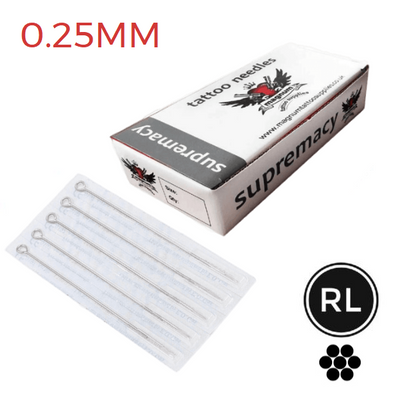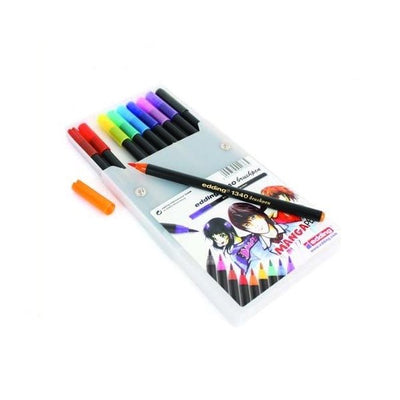Opening your own tattoo studio can be an exciting and rewarding venture, but it is also a significant financial investment. There are numerous factors to consider when budgeting for your new tattoo business. From the equipment to the rent, licenses and permits, labour costs and marketing expenses, there is a lot to consider before becoming successful in the tattoo industry.
This article will help potential owners of tattoo businesses understand all of the associated costs so they can make an informed decision before taking the plunge! We’ll cover everything from up-front expenses like purchasing equipment, supplies and renting space to ongoing expenses such as marketing efforts.
Additionally, we’ll try to provide tips on how to reduce costs while still providing customers with quality work. So let’s dive in – here is what you need to know about opening up your own tattoo shop!

Upfront costs involved in opening a tattoo shop
Upfront costs are very important to consider when creating your tattoo business plan. These expenses include purchasing equipment, supplies and renting or leasing space.
Tattoo equipment
The cost of tattoo equipment is one of the major factors to consider when opening a tattoo shop. Investing in the right tools and furniture is essential to provide customers with quality work.
A big chunk of the initial cost of opening a tattoo shop can be attributed to purchasing furniture, such as chairs, tattoo beds, and workstations. These items not only give your tattoo studio an air of professionalism and credibility, but they are also essential in ensuring customers enjoy a safe and comfortable experience.
We stock a range of tattoo furniture including top-quality TATSoul chairs and tables, ranging from a few hundred pounds to over a thousand.

Cleaning equipment
Hygiene supplies are also essential when opening your own studio. The safety and well-being of you and your customers is paramount, so investing in the right equipment is key.
Autoclaves are a must-have for any tattoo studio if you're not using disposable equipment; they use pressure, heat and steam to sterilize tubes, grips, and other tools. The price of these items varies based on their brand and size, and although they may require a significant upfront investment, they can actually save you money over time.
Health and safety is of major importance in the tattoo industry. Make sure you stock your tattoo studio with all the relevant cleaning supplies and ensure each tattoo artist in your shop knows how to maintain high hygiene standards.

Rent
Renting a space for a tattoo shop can be a significant expense. The cost of renting will vary based on the location and size of the studio, as well as other amenities that may be included.
For example, if you are looking to rent in an area with higher foot traffic or in a desirable location like a shopping centre, you should expect to pay higher monthly rent. However, if you are looking for a more affordable option, more remote locations or industrial parks can be great sources of low-cost rental options.
Additional tattoo studio costs
There are other legal costs you will need to consider when working out the total cost to open a tattoo shop. For example, tattoo studios in the UK are required to have a license from their local authority. The cost of tattoo studio business licenses can vary depending on the location of the shop, but they're typically a few hundred pounds.
Insurance is also an essential component of any business, and this is especially true for tattoo shops. Not only do you need to purchase building insurance to protect your business from physical damage, but you should also obtain public liability insurance.
Public liability insurance covers the costs associated with injuries that may occur on your premises, such as slips, trips or medical conditions that arise from a customer’s tattooing experience. This type of insurance is highly recommended for any business and can be up to a few hundred pounds annually.
Ongoing tattoo business expenses
Once you have opened your tattoo shop, there are still ongoing costs associated with running the business. These costs include monthly rent and bill payments for utilities such as water and electricity, equipment maintenance, and potentially some staff wages.
Utilities
Rent and utilities will be a recurring cost that you need to factor into your budget. Additionally, if you’re operating in an area with high electricity or gas costs, this could add up quickly. Therefore, it’s important to factor these expenses into your overhead when opening a tattoo shop.
Tattoo supplies
Equipment maintenance is also an essential ongoing expense for many tattoo shops. All the machines and tools in your own studio need to be serviced regularly, and you will need to purchase replacement parts from time-to-time. You’ll also have to consider the cost of buying new needles and other equipment such as ink on a regular basis.

Labour costs
Your labour costs are also an important factor to consider when running a tattoo shop. You may need to hire additional staff, such as receptionists or cleaners depending on the size of your studio. These salaries can add up quickly, so it’s important to budget for these costs when deciding how much it will cost to open a tattoo shop.
Marketing costs
Finally, you will also need to account for marketing expenses. Whether you’re advertising on social media, running a business website, or creating promotional material, marketing your business is an important part of running a successful tattoo studio and attracting potential clients.
You may also want to consider other ways to market your business, such as sponsoring local events or offering discounts for referrals to get potential customers through your doors.
Attending tattoo conventions is another great way you can market your new business. Conventions are a great opportunity to showcase the work of your tattoo artists and attract customers from your local area. They also allow you to talk with artists from other tattoo studios and other professionals within the tattoo industry.
Once your tattoo studio becomes more established, you can then focus on building up a loyal client base. This is because the more customers an establishment has, the easier it is to benefit from repeat business. Repeat customers are essential for any business and can be a great source of long-term income for tattoo shops.
Tips for keeping costs low when opening a tattoo shop
One of the best ways to reduce costs when opening a tattoo shop is by finding ways to cut down on rent and utilities. For example, instead of renting a large space with multiple rooms, consider starting off with a small studio in an area with lower rental costs.
You can then slowly expand as your business grows and more tattoo artists get on board. Additionally, look for ways to save on utilities by using energy-efficient lighting and appliances.

When it comes to keeping tattoo shop startup costs low, shopping within your budget is the best ways to keep everything in line. It’s important to remember that not all your tattoo equipment and supplies have to be top-of-the-range in order for you to produce quality work.
However, you should still ensure you purchase your tattoo equipment from reputable brands and suppliers. Low-grade supplies can put you and your customer's health and safety at risk, so it’s important to invest in good-quality products that will stand the test of time.
Final thoughts on tattoo shop startup costs
Opening a tattoo shop can be expensive and time-consuming. However, if you stick to a business plan and are willing to put in the effort and research all of your options carefully, it is possible to keep costs low and still provide a high-quality experience.
Researching rental prices in different areas, and shopping within your budget for equipment and studio supplies, are just some of the ways that you can reduce expenses while running a successful tattoo business.
With these tips in mind, entrepreneurs should feel more confident about how to open a tattoo shop in the UK!



























































 Studio supplies
Studio supplies












 Power & batteries
Power & batteries








 Aftercare
Aftercare





















 Apprentice
Apprentice


 Piercing & jewellery
Piercing & jewellery







 PMU supplies
PMU supplies




 New arrivals
New arrivals
 Gift vouchers
Gift vouchers
 Shop all
Shop all















































